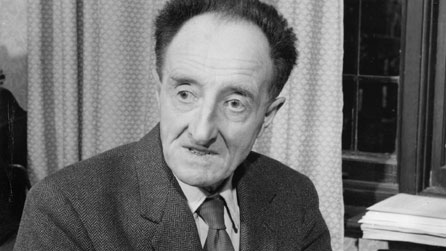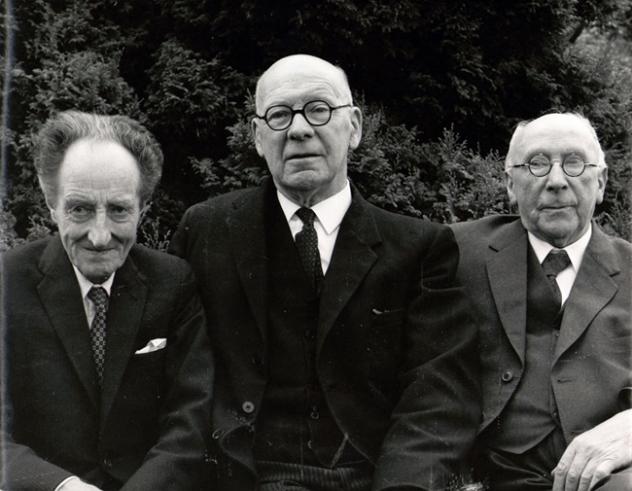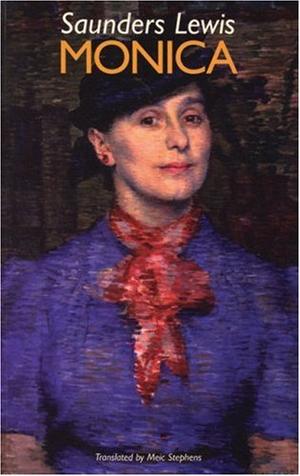Saunders Lewis

POET, novelist, dramatist, critic, politician and one of the founders of Plaid Genedlaethol Cymru (Welsh National Party), Saunders Lewis is one of Wales’s leading literary and political icons, and can be considered a nationalist hero.
He was born John Saunders Lewis, into a Welsh-speaking family in Wallasey, Cheshire, on October 15, 1893, and grew up among the Welsh community in Merseyside.
Lewis studied English and French at Liverpool University until the breakout of World War One, after which he served in the South Wales Borderers. After the end of the war Lewis returned to university and graduated in English.
In 1922, Lewis joined the University of Wales, Swansea, as a lecturer in Welsh. Lewis’s nationalism was heightened by his wartime experiences, and fighting with Irish soldiers in particular seemed to shape his ideas on the importance of Welsh identity.
Lewis founded Y Mudiad Cymreig (The Welsh Movement) with a small group of fellow nationalists. The group met secretly for the first time in Penarth on January 7, 1924. The group continued to meet in secret throughout taht year and began drawing up a set of aims and policies intended to “rescue Wales from political and cultural oblivion”.
At around the same time as Lewis formed Y Mudiad Cymreig, another group of nationalists formed Byddin Ymreolwyr Cymru (The Welsh Home Rule Army) in Caernarfon. The group was led by Huw Robert Jones, who made contact with Lewis in early 1925 and proposed to form a new political party.
Lewis joined other nationalists at a 1925 National Eisteddfod meeting in Pwllheli and Plaid Genedlaethol Cymru was established, of which Lewis was president from 1926 to 1939.
The principal aim of the party would be to foster a Welsh-speaking Wales. According to the 1911 census, out of a population of just under 2.5million, 43.5 per cent of the total population of Wales spoke Welsh as a primary language. This was a decrease from the 1891 census with 54.4 per cent speaking Welsh out of a population of 1.5million. It was agreed that Plaid business be conducted in Welsh, and that members sever all links with other British parties.
During the inter-war years, Plaid Genedlaethol Cymru was most successful as a social and educational pressure group rather than as a political party. For Lewis, “the chief aim of the party [is] to ‘take away from the Welsh their sense of inferiority… to remove from our beloved country the mark and shame of conquest.'”
In 1936, in protest to an RAF ‘bombing school’ being established for training purposes at Penyberth on the Llŷn Peninsula, Lewis, along with DJ Williams and Lewis Valentine, set the school alight, and claimed responsibility for the act of arson.

Protests against the project had been summed up by Lewis when he wrote that the UK Government was intent upon turning one of the “essential homes of Welsh culture, idiom, and literature” into a place for promoting a barbaric method of warfare.
Lewis was dismissed from his post at Swansea University following the crime. The Penyberth Three were jailed for nine months at Wormwood Scrubs for the act. On their release, they were greeted as heroes by 15,000 Welsh people at a pavilion in Caernarfon.
Afterwards, Lewis worked as a journalist, teacher and school inspector. He returned to lecturing in 1952 at Cardiff and remained there until his retirement five years later.
Lewis’s literary output was considerably varied. Whilst at his post at Swansea he published literary criticism such as A School of Welsh Augustans, Williams Pantycelyn and Braslun o Hanes Llenyddiaeth Gymraeg (An Outline History of Welsh Literature), released in 1924, 1927 and 1932 respectively.
Lewis also wrote numerous articles and essays which were published in various magazines, newspapers and journals, and also published two novels: Monica (1930) and Merch Gwern Hywel (The Daughter of Gwern Hywel) in 1964.

However, due the amount of plays he produced, Lewis was above all a dramatist. Of note are; The Eve of St John (1924), Blodeuwedd (The Woman of Flowers; 1923-25, revised 1948), Siwan (1956), Brad (Treachery) (1958), and Cymru Fydd (Tomorrow’s Wales) (1967). In 1970, Lewis was nominated for the Nobel Prize for Literature.
He wrote the libretto for Arwel Hughes’s opera Serch yw’r doctor (Love’s the doctor), based on Molière’s L’Amour médecin (first performance 1960 by Welsh National Opera).
In 1962, Lewis gave a lecture on BBC radio entitled Tynged Yr Iaith (The Fate of the Language) in response to the 1961 census, which showed a decrease in the percentage of Welsh speakers from 36 per cent in 1931 to 26 per cent, of the population of about 2.5million. In this speech, Lewis predicted the extinction of the Welsh language and declared that the language would die unless revolutionary methods were used to defend it. A result of the lecture led to the foundation of Cymdeithas yr Iaith Gymraeg (the Welsh Language Society).
In March 1983, at the age of 89, Saunders Lewis was made an honorary Doctor of Letters of the University of Wales at a ceremony specially conducted at his home in Penarth.
Saunders Lewis died on September 1, 1985, at the age of 91. He was voted the 10th greatest Welsh hero in the ‘100 Welsh Heroes’ poll, released on St David’s Day, 2004.
A plaque was inaugurated to mark the 75th anniversary of Plaid Cymru’s founding meeting in 2000, on the building where the meeting took place in Pwllheli.
BACK TO HOME PAGE